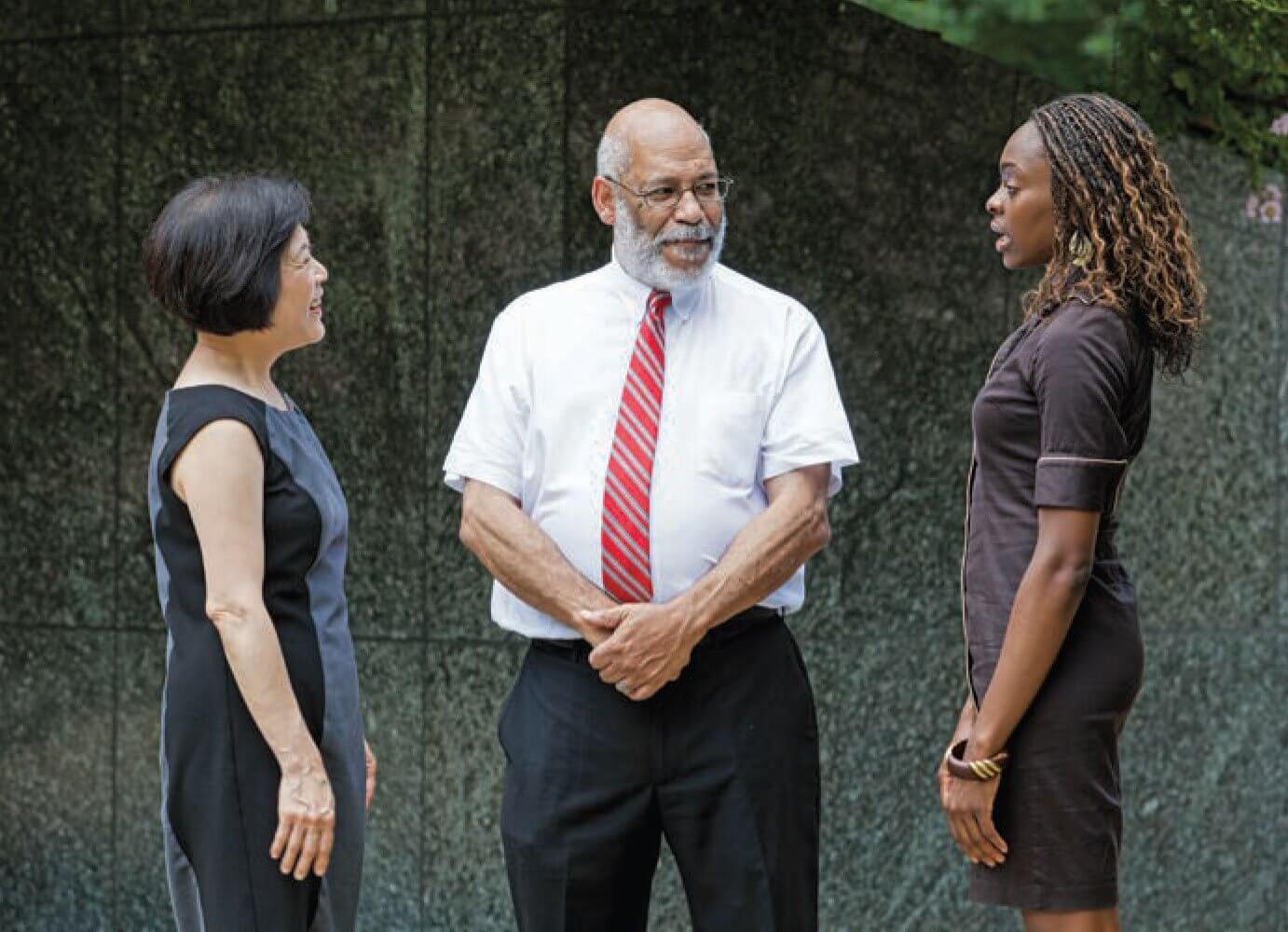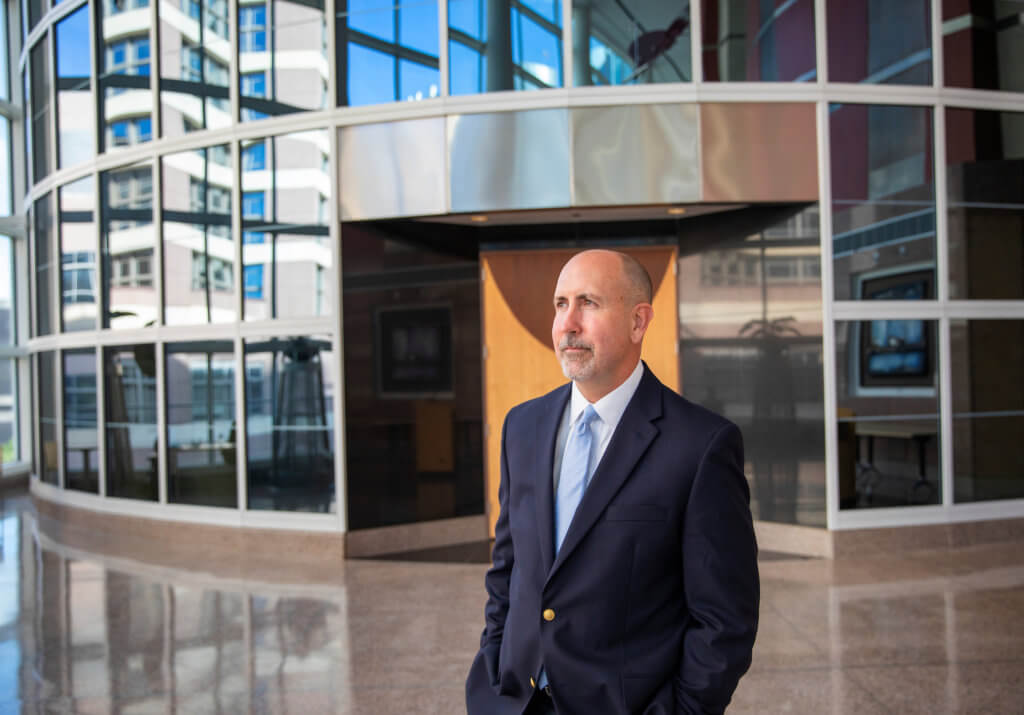Enhancing Health Equality

As innovative advances in health care sculpt a new standard for future generations, enhancing health equality is more important than ever. Health disparities, the population specific differences in the presence of disease, health outcomes, and access to quality health care that exist across racial and ethnic groups, continue to expand a widening gulf between discovery and delivery. Promoting awareness in an effort to bridge that gap, the 12th Annual Disparities in Health in America: Working Towards Social Justice Workshop was held at Prairie View A&M University’s College of Nursing this past June.
“The widening gap between discovery and delivery is multifactorial,” said Lovell A. Jones, Ph.D., founder of the Health Disparities, Awareness, Research and Training (HDEART) Consortium. “The application of personalized medicine, new discoveries and innovative techniques are limited by an individual’s disposable income. It also depends on how we value dissemination versus discovery. Discoveries receive headlines, while how effectively that discovery is disseminated may receive a byline.”
The attendees were bolstered by the collective goals of achieving a comprehensive understanding of health disparities, investigating approaches to improving health equality, and providing participants with a broad base of knowledge to address health disparities faced by the medically underserved. Jones, who came to Houston over 33 years ago with a mission to change the face of cancer, launched the HDEART Consortium with similar goals in mind.
“The HDEART institutions were brought together to create a new paradigm in not only bringing attention to glaring health disparities, but to create solutions to these issues,” he said. “Health care access alone will not solve the issue of disparities. By bringing together not only health entities, but full academic institutions along with other agencies, we might develop the foundation for a different paradigm that would include more than your usual suspects.”
In 1999, Congress appropriated funds for the creation of the mandated Center for Research on Minority Health (CRMH), the first of its kind in the nation. Three years later, as an effort of the CRMH, the HDEART Consortium was established with seven institutions. Twelve years since its inception, HDEART now consists of 39 institutions, including a few in Mexico and the Federal Republic of Nigeria, attracting attendees and speakers from all corners of the United States.
“Over the past decade, we’ve touched the lives of over 4,000 individuals, the majority of our trainees,” reflected Jones, currently professor emeritus at The University of Texas MD Anderson Cancer Center and research faculty at Texas A&M University Corpus Christi. “What is most gratifying, to me, is that today former attendees are now sending their own students to learn about our biopsychosocial approach to addressing health disparities.”
The workshop ran from June 23-28, tackling topics such as population substructure, genomic technologies, and disparities in the communication and information needs of post-treatment cancer survivors. One of the presentations focused on CAN DO Houston (Children And Neighbors Defeat Obesity), a community-based organization founded by Jones to help low-income communities improve their access to opportunities for healthy eating and active living. Utilizing the biopsychological approach of CRMH, CAN DO Houston highlights real world solutions to health disparities happening in our own backyard through community engagement, capacity building, and environmental policy change.
“We’re not just researchers and we’re not just health promoters—we try and connect research to practice because we feel that is the way to really impact the public’s health,” said Beverly J. Gor, Ed.D., R.D., L.D., research associate for CAN DO Houston and instructor in health disparities research at MD Anderson. “We find that there are a lot of underpinnings and a lot of other issues that we have to address first before we can start talking about childhood obesity. CAN DO Houston presents a better solution in the form of a community-designed approach.”
Since 2008, CAN DO Houston has addressed the childhood obesity epidemic by supporting physical activity, nutrition, and healthy minds in children in the Houston metropolitan area. Creating and sustaining collaborations between individuals, institutions and organizations to maximize their impact, CAN DO Houston has grown into a consortium of over 40 organizations whose goals range from promoting healthy eating and physical activity to community empowerment.
“There is something completely different that occurs when you actively engage with a community versus just being present and talking to them— those are two very different things,” added Jasmine J. Opusunju, Dr.P.H., MSEd, CHES, executive director of CAN DO Houston. “Our primary focus is not programming—it is environmental and policy change. The arena where you really make a difference is when you meet people on their own terms, starting with their immediate needs and identifying where their interests lie. From there, you can begin to effectively engage community members in relevant solutions that will transform the healthy choice into the easy choice.”
That personalized approach is emblematic of the larger workshop, embracing the potential to create a community mindset through our common goals. “That’s what this workshop has been and continues to be about— that cross dialogue that allows different people to learn that they actually have a lot in common,” said Jones. “There’s an opportunity to begin to work together and it’s not a zero-sum game where by helping someone else, you’re hampering your own advancement. It’s about helping all of us move forward. The workshop, from what people have said to me, is life-altering because they leave with a different perception about what’s valuable.”




